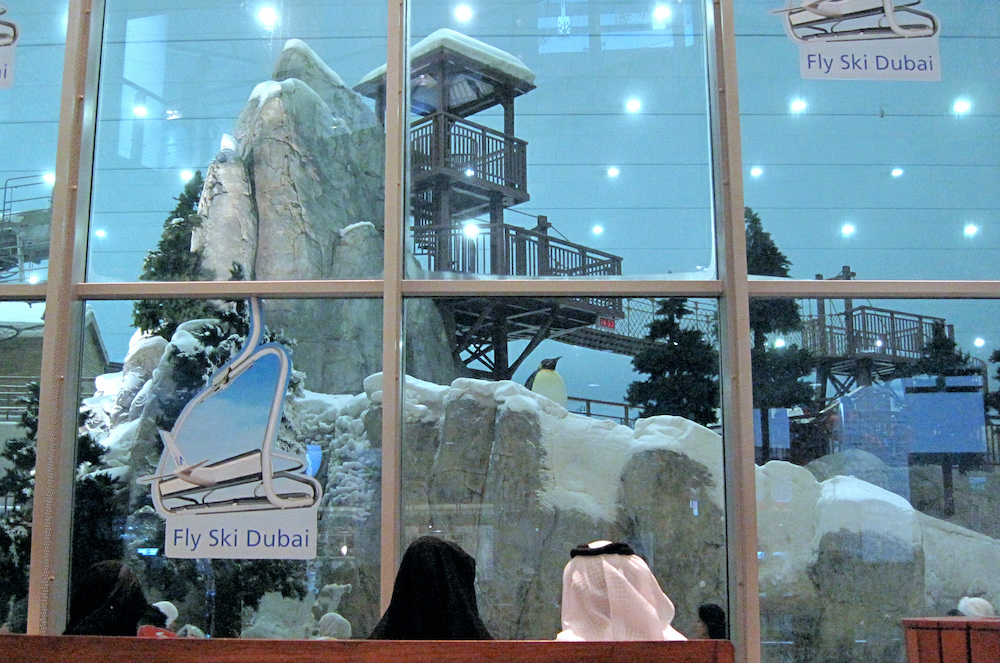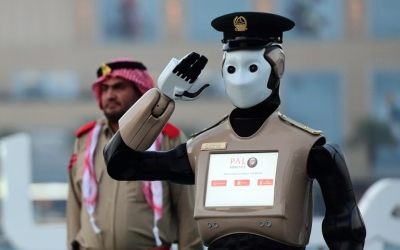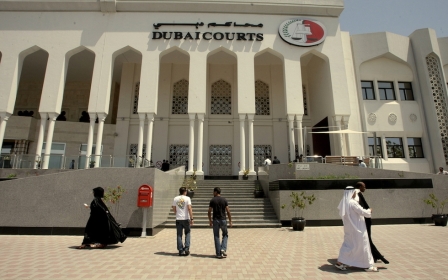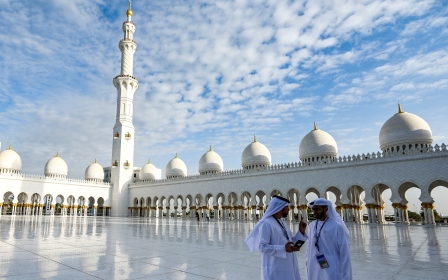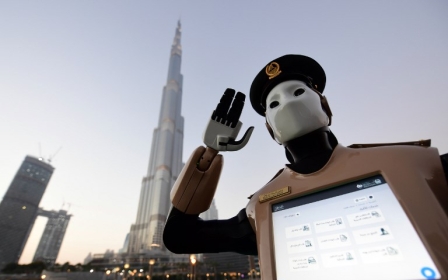UAE National Day: Lavish celebrations in a surveillance state
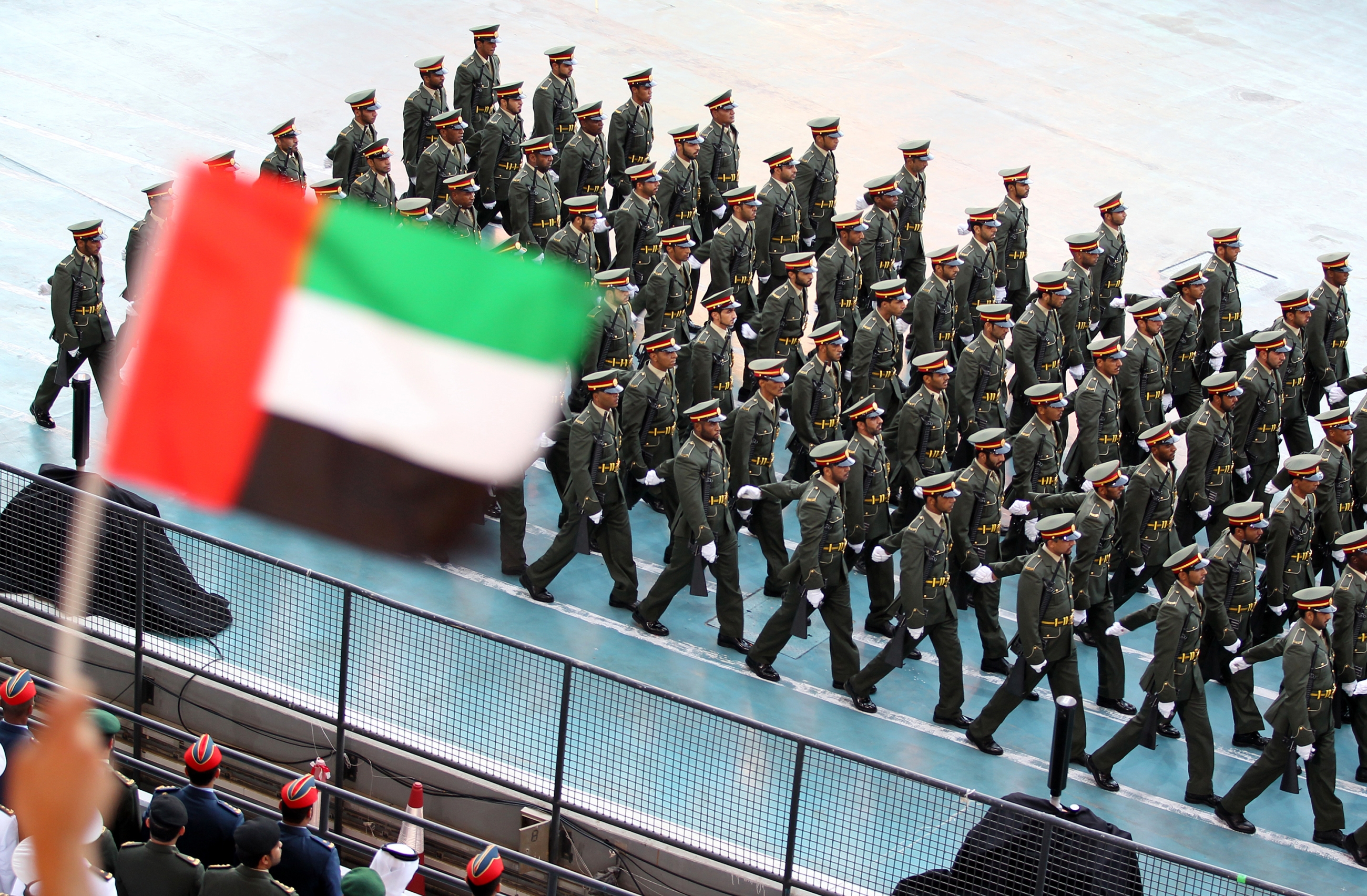
On Wednesday, the United Arab Emirates celebrates 49 years of existence.
The Gulf News website suggests "49 things to do" in honour of National Day, such as “go shopping” - no doubt a fitting activity in a police state of mega-malls, soul-obliterating materialism and shameless overconsumption, where basic freedoms of speech, expression and association are effectively criminalised, while bombing and starving the nation of Yemen are not.
It's not only domestic oppression - pardon, happy tolerance - that should mar the UAE's 49th National Day. Years of slaughter of Yemeni civilians
should also rain on the parade
In a 2006 essay titled “Fear and Money in Dubai”, American historian and urban theorist Mike Davis described the iconic Emirati city-state as epitomising “apocalyptic luxuries”. Dubai, he wrote, had become a “huge circuit board upon which the elite of transnational engineering firms and retail developers are invited to plug in high-tech clusters, entertainment zones, artificial islands, glass-domed ‘snow mountains’, Truman Show suburbs, cities within cities - whatever is big enough to be seen from space and bursting with architectural steroids”.
Nearly a decade and a half later, things have naturally only gotten more apocalyptic. And as if there weren’t already enough luxury and fake cheer to go around, the UAE is set to hold a Golden Jubilee when it turns 50 next year. Think midlife crisis on steroids.
But in the meantime, the current year has been a momentous one for the Middle Eastern federation of sheikhdoms - and not only because the Covid-19 pandemic has given the Emirati monarchs an excuse to further eradicate civil liberties at home, while also engaging in nefarious collaboration with the UAE’s newly unveiled BFF, Israel.
New MEE newsletter: Jerusalem Dispatch
Sign up to get the latest insights and analysis on Israel-Palestine, alongside Turkey Unpacked and other MEE newsletters
As detailed on the official web portal of the Emirati government, the year 2020 - excitingly themed “Towards the next 50” - had been dedicated to preparing the country not only for the golden jubilee celebrations, but also for the next half century of existence, ideally culminating in a centennial in 2071.
Designing the future
The portal notes that, in September 2020, the government “launched a major public eParticipation project” in order to “engage all segments of the society … in designing the next 50 years of the UAE”. To this ostensible end, a digital platform - UAENext50 - purports to “gather ideas from citizens and residents”, all in the interests of “reach[ing] a unified societal vision to make the UAE one of the world’s best countries to live in”.
Indeed, a visit to the UAENext50 website offers many a participatory mouse click, from “Design UAE Future” to “DESIGN NOW” to a page featuring 19 different options to choose from in terms of “the field of the design”, from economy to education to investment, business, security and safety, foreign trade, and so on.
It’s almost as if designing a country’s future were as simple as designing, well, a website. There's nothing like a bit of technology and some malls with ski slopes to endow an oppressive regime with a veneer of modernity and progress.
The fact that public “eParticipation” should now be a vaunted component of Brand UAE is particularly curious, given that the slightest bit of online dissent is grounds for detention in the country, and that its rulers pathologically imprison, torture and disappear people for veering from the authorised “unified societal vision”.
Human rights violations
Among those unwelcome in helping to design “the next 50”, of course, are the likes of Ahmed Mansoor, the award-winning Emirati human rights defender sentenced to 10 years in jail for insulting the “status and prestige of the UAE and its symbols”, including its leaders.
Nor, obviously, should societal visions be attempted by the brutalised migrant workforce upon whose backs the present incarnation of the UAE was built.
An omnipresent surveillance apparatus has rendered the Emirates one of the world’s Biggest of Brothers, while the UAE’s decision to appoint a minister of state for tolerance, as well as one for happiness and wellbeing, confirms that there are things that not even George Orwell himself was capable of making up.
Additional outmanoeuvring of Orwell occurs in a 30 November Gulf News article reporting the release of “about 51 inmates” from the UAE’s Fujairah Punitive Institution “with the help and intervention of Indian expatriate businessman Firoz Merchant”, who is covering the costs to repatriate the debt-stricken prisoners to their respective countries.
The article quotes Merchant as stating that he is “happy” that the prisoners will “fly home with beautiful memories of the UAE and they will remember this country for its generosity, tolerance and humanitarian values”. He is quoted as continuing: “They can now celebrate the 49th UAE National Day in peace and return home to their families.”
Imperial accomplice
My own perusal of the article in question came accompanied by suggestions that I might also enjoy dispatches such as “Dubai Parks’ Legoland reopens on December 1” and “Dubai will soon have a ‘snow cinema’ near you”.
But it’s not only domestic oppression - pardon, happy tolerance - that should mar the UAE’s 49th National Day. Years of slaughter of Yemeni civilians by a Saudi- and Emirati-led coalition should also rain on the parade. Ditto for Emirati prisons-cum-sexual torture centres in Yemen.
The UAE’s recent decision to normalise relations with Israel, meanwhile, means that the Arab nation is now formally complicit in Israeli massacres and ethnic cleansing of the Emiratis’ fellow Arabs in Palestine.
The country has long served as imperial accomplice in other ways, as a primary purchaser of US weapons and a base for thousands of US troops. Now, as the UAE charges towards the next 50 years in the land of “apocalyptic luxuries”, one can’t help but kind of hope the apocalypse comes first.
The views expressed in this article belong to the author and do not necessarily reflect the editorial policy of Middle East Eye.
Middle East Eye delivers independent and unrivalled coverage and analysis of the Middle East, North Africa and beyond. To learn more about republishing this content and the associated fees, please fill out this form. More about MEE can be found here.



